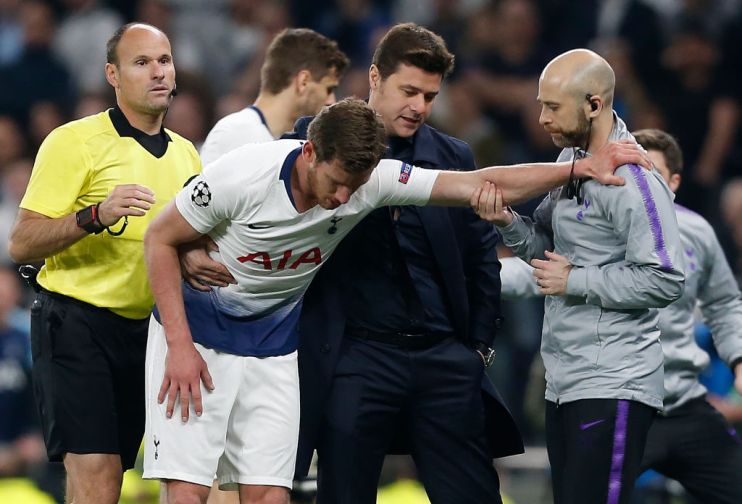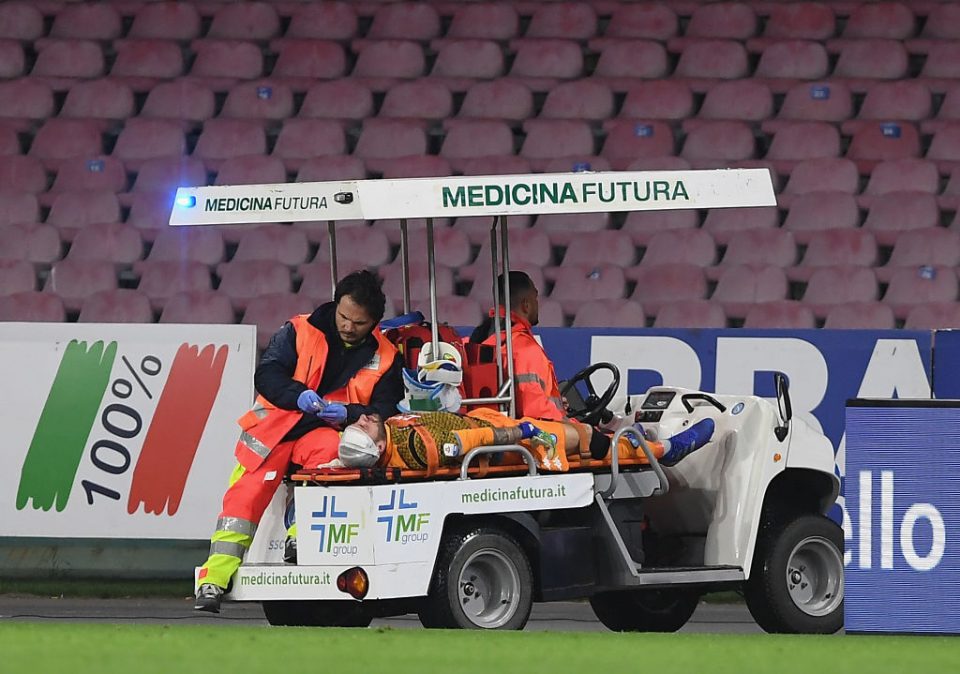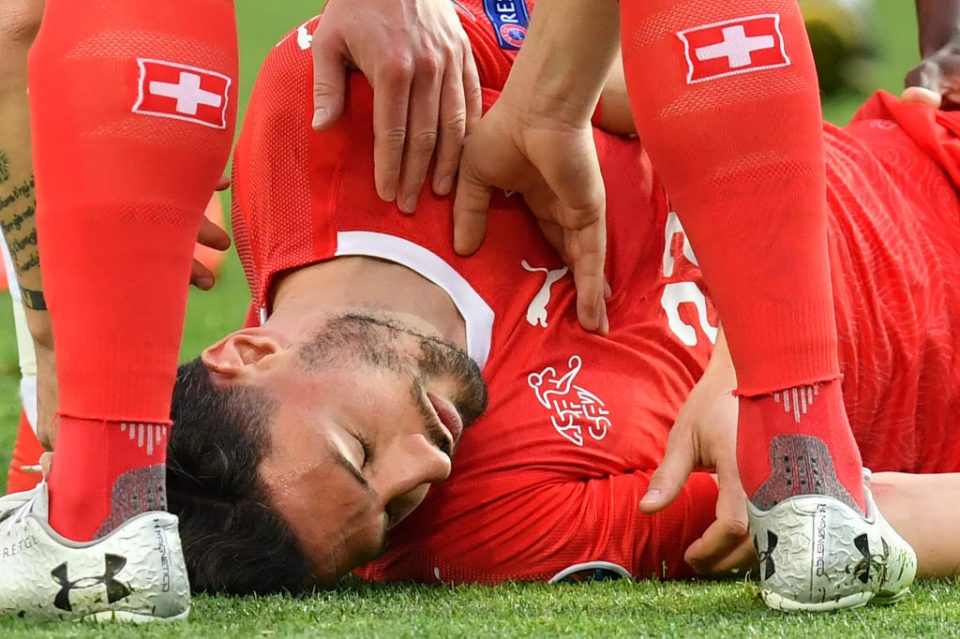Football’s head injury policy is still flawed despite warnings

At the end of last season Uefa president Aleksander Ceferin called on Fifa to introduce new concussion protocols, stating they “need updating to protect both the players and doctors”.
It came after a year in which a number of footballers, including Tottenham’s Jan Vertonghen in a Champions League semi-final, were allowed to play on after suffering a blow to the head before later being removed from the field.
Goalkeepers David Ospina and Anthony Lopes and defender Fabian Schar – who was completely knocked out – were all also allowed to continue despite head traumas before being substituted during matches last season.
Read more: Kevin De Bruyne shines as Manchester City beat Liverpool to Community Shield
And while the medical staff involved have come in for criticism, the need for football to introduce new concussion regulations has become increasingly apparent as the Premier League prepares for its big kick-off this weekend.
The Football Association and world governing body Fifa’s current guidelines dictate that players who lose consciousness should not return to the field, but that is only a symptom in around 10 per cent of concussion cases.
Additionally, it is not a protocol shared by European governing body Uefa, highlighting the lack of universal legislation that must be adhered to.
Fifa did, however, adopt Uefa’s three-minute assessment policy for the 2018 World Cup. But during that tournament Morocco fielded defender Nordin Amrabat in a match five days after he was hospitalised and lost six hours of memory. That incident came just a month after then-Liverpool goalkeeper Loris Karius suffered an undiagnosed concussion midway through the Champions League final.

The pressure has since ramped up on Fifa to introduce new laws to protect players from serious, long-term damage. Temporary substitutions is one solution supported by brain injury association Headway.
“Assessing a player for three minutes does not allow medical staff to make a reliable diagnosis,” says Headway chief executive Peter McCabe.
“Football should trial temporary concussion substitutions that would allow longer off-pitch assessments to be conducted.
“It’s also imperative that independent doctors, rather than club medics, should make the ultimate decision as to whether or not a player is fit to continue.”
It’s a system that other professional sports have already implemented.
A head injury assessment (HIA) was introduced in Rugby Union following the 2015 World Cup, allowing a team or independent matchday doctor to conduct a 10-minute off-field assessment while a temporary substitute replaces them.
Anyone displaying symptoms of concussion is permanently removed from the game, while all players who need assessment must be re-evaluated within three hours of the final whistle and again two days later.
In NFL, a sport that faced multi-million dollar litigation over is treatment of head injuries, the rules are now even more rigorous. Any player showing confusion, amnesia or a lack of consciousness is permanently removed from the field.
Players involved in an incident with the head, which can be identified by the team doctor, an independent doctor, or “spotters” with access to video replays specifically designated for this role, must undergo a comprehensive assessment with a doctor and unaffiliated neurotrauma consultant.

Even in a non-contact sport like cricket where concussion is less common, the county game last year implemented rules that allow an on-field assessment for five minutes with the possibility to use a concussion substitute if deemed necessary.
The laws were changes after research revealed that around 15-20 players a season had suffered a concussion due to being hit in the head by the ball and the international game has since followed suit.
Repeated blows to the head can lead to the onset of chronic traumatic encephalopathy (CTE), and a recent study led by the University of Glasgow discovered that former football and rugby players with dementia were six times more likely to suffer from CTE, revealing the multitude of long-term brain pathologies that head traumas can cause.
There are additional concerns about the lack of time players spend recovering, with current guidelines advising them to take six days off.
A study published in the American Journal of Sports Medicine last month revealed Premier League players missed just 10.9 days, or 0.6 games, on average following a concussion, compared with 37 days, or 7.3 games, for top-flight footballers in the US.
Read more: Brentford are getting Premier League ready behind the scenes
It also revealed Premier League players’ performances suffered a dip following their return that the US players didn’t, and it is perhaps owing to the concussion storm that embroiled the NFL that American sports appear to be taking the issue more seriously.
Fifa is understood to be looking into new protocols, but declined to specify what they might look like or when they might come into effect.
“Fifa regularly monitors the situation of head injuries, maintaining constant contact with current and on-going studies on this matter and reviewing our protocols,” a spokesperson said, referring to their current “when in doubt, sit the player out” recommendation.